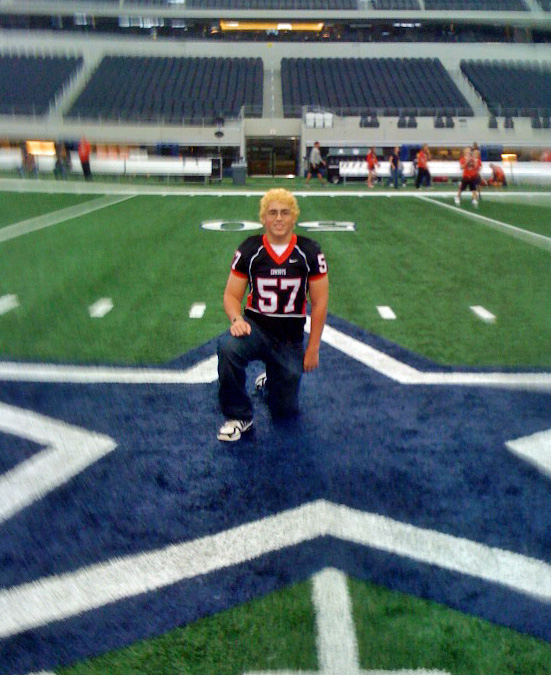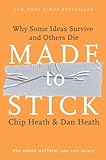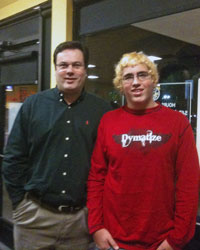What could turn this boy, who I happily go to Cowboys games with …
… Into this boy?
When it happened, I posted this comment on Twitter: "My high-school age son came home today as a Platinum Blond. Hooray … it makes guessing 'What's Next' so much more fun."
The responses were clever. One guy said: "Grounding is next, I expect." Someone else thought providing a little contrast would help. They said: "Here's what could be next … Well, hope not … but you never know". Click this link to see what they were referring to.
As it turns out, his blondness was something many football players did to celebrate their team making the play-offs and getting to play at the new Cowboys' Stadium.

Somehow (in this context) he looks better to me already … But he doesn't have my burst of slowness, yet.
The point is that many things we initially perceive one way, may turn out to be something quite different all-together.
Here is a Story to Illustrate This Better … And to Make it Stick.
 This is another one of those stories I get, in different forms, from time-to-time.
This is another one of those stories I get, in different forms, from time-to-time.
It is called "Who Knows?" And sometimes it is told as an old story from China, while other times it is set during the American Civil War.
Nevertheless, "Who Knows?" is one of those "sticky"
stories that people like to re-shape and re-tell. So, with no further
ado, here it is for you to read for yourself.
Who Knows?
A farmer's horse ran away one day and all the villagers came to him saying, Oh what bad luck you've had! Your horse that you need to do your work is gone!
The farmer shrugged his shoulders and said, Good luck, bad luck. Who knows?
Several days later, the farmer's horse returned, followed by a herd of wild horses!
Oh what good luck you have, cried the same villagers! Not only has your horse returned, he has brought you many horses!
The farmer again shrugged his shoulders and said, Good luck, bad luck. Who knows?
One day not long after, the farmer's son was trying to break one of the wild horses. He was thrown off the horse and broke his leg.
Oh what bad luck you have! Cried the villagers. Now your son has a broken leg. Who will help you?
The farmer shrugged his shoulders and said, Good luck, bad luck. Who knows?
Not long after, as the son was recuperating, an army came through the village and took all the young males to fight in a war in another region. They did not take the farmer's son because of his broken leg.
Oh what good luck you have! The villagers cried once again. Your son has been spared being taken off to war because of his broken leg!
The farmer shrugged his shoulders and said, Good luck, bad luck. Who knows?
We Don't Know … Yet.
This is a great story to remember when you're projecting far beyond the present moment … or even when you're just worrying about what will happen next?
The things we think are good fortune can often have bad endings; and vice-versa. How many times have you looked back on what seemed like bad luck, when it happened, but later realized that it was the start of something better?
Made to Stick:
 This story reminded me of the book by Chip and Dan Heath, called Made to Stick: Why Some Ideas Survive and Others Die. It is a fascinating explanation about what makes an idea memorable or interesting.
This story reminded me of the book by Chip and Dan Heath, called Made to Stick: Why Some Ideas Survive and Others Die. It is a fascinating explanation about what makes an idea memorable or interesting.
The
premise is that you should focus on the six things that make ideas
stick – which they summed up in the mnemonic "SUCCES" (yes, I know that
success has two "s"s at the end … I didn't make up the acronym).
Here is what that represents:
- Simple — find the core of any idea;
- Unexpected — grab people's attention by surprising them;
- Concrete — make sure an idea can be grasped and remembered later;
- Credibility — give an idea believability;
- Emotion — help people see the importance of an idea;
- Stories — empower people to use an idea through narrative.
Other Resources:
- Link to the Book: Made to Stick: Why Some Ideas Survive and Others Die
- Link to the Heath Brothers' Made to Stick Website
- Link to Videos about Made to Stick.


